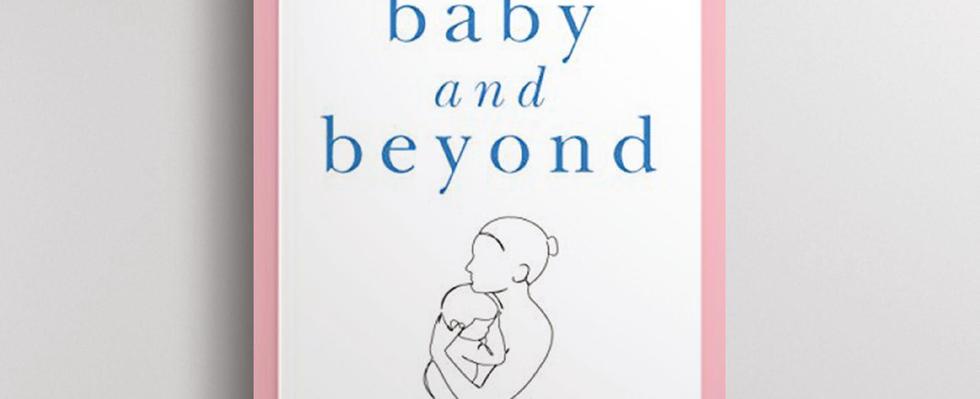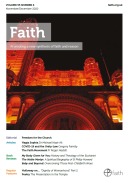Book Review: The Catholic New Mother
This slim volume from Sophia Institute Press recounts a Catholic mother’s experience of the postpartum period, defined here as the first year after a child is born. The author, Allison Auth, a mother of four and a former marriage preparation instructor and blogger, uses the summed experience of her own four postpartum periods to explore all the different aspects of the physical, mental, and spiritual changes that a woman experiences in this unique time. It is an unapologetically personal and searingly honest account of what she underwent and what she learnt along the way, through which her Catholic faith and her deep commitment to her vocation as a mother and wife are very evident.
Those who need to understand
The author’s stated aim is to help other mothers who are experiencing similar challenges: ‘to help you know you are not alone’; and as a first-time mother of a six month old baby, I could certainly relate to much of what she writes. Nevertheless, in some ways the people who would benefit most from reading this book are those who will never go through this experience themselves or witness it at close hand, but who need to understand it, for example priests especially those involved in marriage and family ministries. The author writes that she wished she had read a book like this in pregnancy to prepare herself. I would not necessarily recommend this book to a pregnant woman, since the picture it paints of the postpartum period is an intimidating one. Although, as the subtitle suggests, the author does work through her suffering to find meaning and joy, the majority of the book’s content is describing the suffering, not the joy, and it does not shy away from the grisly details. This is in itself not a bad thing: it is an honest account of what many women go through and which is often hidden from society at large; but a nervous pregnant woman may well find it anxiety-inducing. Readers need to remember that the author is simultaneously describing four different postpartum experiences: no woman would go through everything that she describes with a single newborn baby; indeed some of the experiences are contradictory.
Personal Details
This is one of the ways in which the book occasionally suffers from a lack of clarity. It has a relaxed and colloquial writing style (presumably developed through the author’s blogging experience); and while this is in one way the book’s greatest strength since it makes Auth very relatable, it does have a tendency to meander. The amount of personal detail can also sometimes obscure the wider point that she is making. For UK readers, there are some cultural differences to get over, such as the personnel and institutions involved in pregnancy and postpartum healthcare, attitudes towards taking medical supplements, and expectations around maternity leave.
Catholic-specific issues
The author starts by describing her experiences of giving birth and goes on to discuss her physical recovery, mental health, spiritual life, marriage and NFP, and her efforts to find a supportive community. There are interesting reflections and useful tips in all the chapters, but I found the most original parts to be those which tackled Catholic-specific issues, particularly the chapter on postpartum spiritual life. The author describes her frustration that she could no longer do ‘all the external practices that used to make me feel like a good Catholic’ and movingly charts her journey to embrace her own weakness and her discovery of the divine presence in her everyday life. God and
Needy Babies
Drawing on a range of inspiration from Caryll Houselander to Saint Faustina Kowalska, she develops a postpartum spirituality which is essentially ‘the recognition that we are nothing without God.’ She movingly writes: ‘Just as in autumn, when the seed falls from the tree and dies, the postpartum season shows us how much we need Christ because we don’t have it all together. We are broken, empty, exhausted. We have to die to self. But come spring, the seed brings forth new growth, not only literally, in terms of the baby you are raising, but also in the spiritual life, as God is able to speak to you in new ways.’ I also appreciated her pithy reminder that ‘if God wanted motherhood to be filled with holy hours and church events, He wouldn’t have created babies to be so needy.’
Honest Acknowledgement
Auth intends her book to be in part a corrective to the narrative found in both secular society and Catholic circles that the postpartum period is a time of unadulterated bliss. It has become a cliché to criticise social media for displaying an inauthentic ‘showreel’ of people’s best experiences, so what she is saying here may not be especially new. However, I believe she is right that there is a particular applicability for Catholics, and I think she could have explored this further. As defenders of marriage and family life, we can be tempted to gloss over the very real struggles in being open to life for fear of complicating our argument or simply putting people off. However, women (and indeed men too) would be better served by the honest acknowledgement that bringing children into the world is a difficult and exhausting business through which God calls couples to a hard-won holiness. Auth says at the conclusion of her book: ‘
…the struggle, the failing, and the getting back up again is exactly what God is using to mould me into the person He created me to be. And so I keep struggling, I keep leaning on God’s mercy, and therein lies the hope that one day I will be perfected in heaven.’
This presentation of the postpartum period as an intense microcosm of the Christian life as a whole is in my opinion the most valuable and lasting contribution of this book.
Lucy Wells is a graduate in English Literature from Durham University and works as a commissioning editor in academic publishing. She lives with her husband and baby daughter in Oxfordshire.






